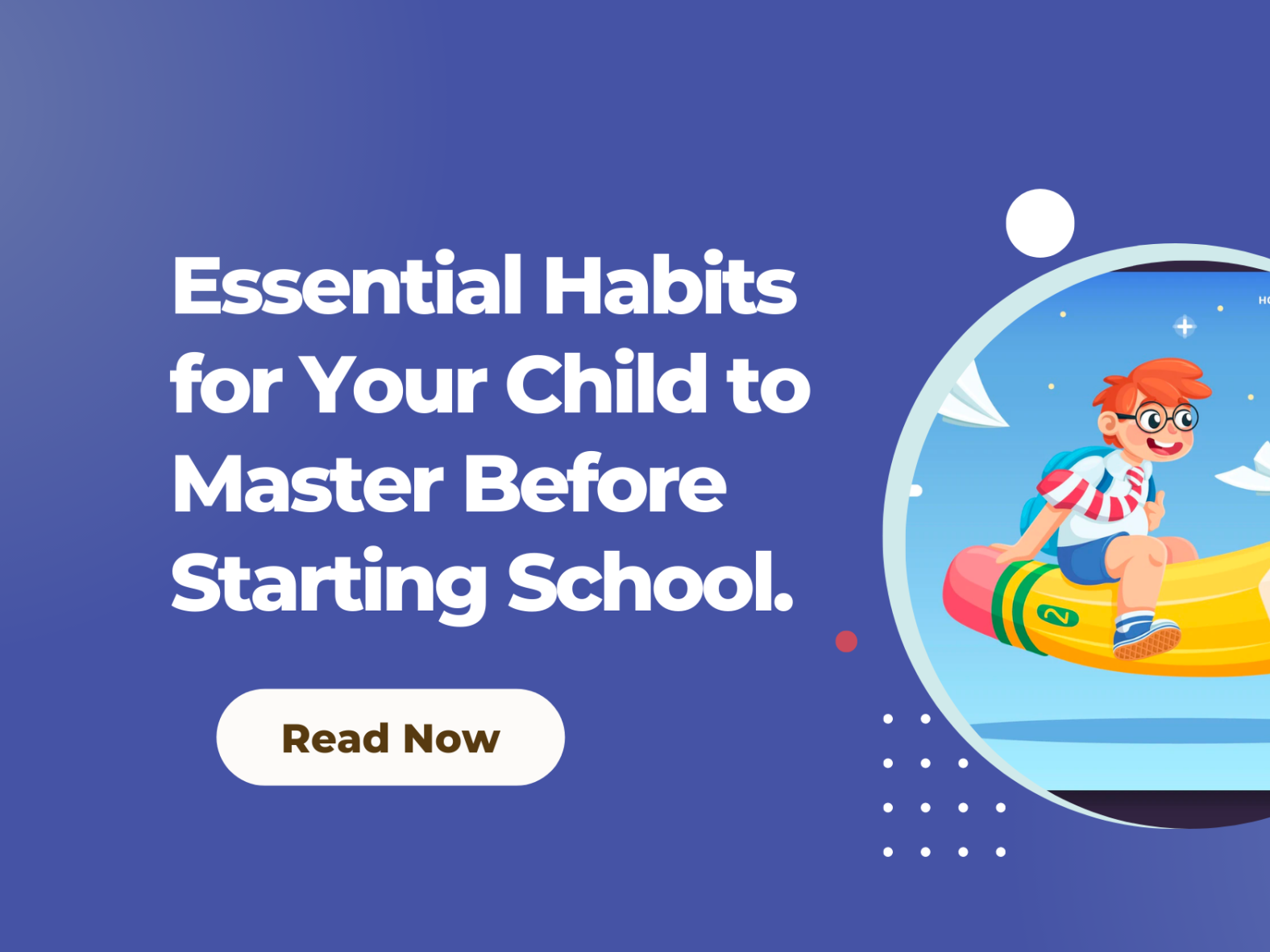Your child’s first steps towards school life are fast approaching – they will soon be in a whole new world away from the sheltered ambience of home, among bright young minds like their own. While this brings exciting possibilities, it is also important to make sure your child is well prepared for this move.
In a crowded school atmosphere, health and hygiene are more important than ever. You can help your child appreciate the value of good hygiene by encouraging them to follow some simple personal grooming habits.
Every parent wants the best for their children. They want children to grow and become the best version of themselves. But, all this starts with the habits you teach them. The habits you teach them before they start school will stay with them forever.
Leading daycare & preschool Amelio believes that it’s very important that as a parent you imbibe healthy habits in your kids. Here they list down the important habits that must be taught to your child to help them make the most of their schooling years. After all, you don’t want them to be troubled with illness all the time when at school because of their bad habits.
Sathish Kumar Thiyagarajan, Head – of Curriculum at Amelio Early Education mentions these must be taught habits to your children –
1. Brushing:
Stress the need for your child to brush their teeth all by themselves twice a day. Make this a part of their daily routine and get them to take pride in their independence in completing this task.
2. Washing hands:
The best way to inculcate this is to lead by example. Ensure that you and your family members don’t eat anything without washing your hands, or wash your hands and feet immediately after returning home from outside.
3. Covering mouth and nose:
Give your child their own set of handkerchiefs to take care of responsibly. Tell them about the threat of germs when a handkerchief is not used to cover their mouth and nose while sneezing or coughing.
4. Toilet training:
By this age, your child must already be acquainted with the concept of toilet training and has probably even mastered it. However, using unfamiliar toilets might still be a problem for them. Talk to them about identifying their toileting needs and using a clean toilet, and encourage them to ask caregivers for help if needed. Also, ensure that they know how to clean up after themselves – this includes washing, flushing correctly, and washing and drying their hands.
5. Taking care of their nails:
Make nail cutting a part of their weekly or fortnightly routine – you can even use a calendar to mark the days and encourage them to take it up as a responsibility.
6. Washing face:
Encourage your child to wash their face on their own before going out of the house and after returning from outside. Tell them that dirt and grime on the face are a strict no-no.
7. A neat hair-do:
Schools are usually strict about the hairstyles that children can have in the interest of maintaining a neat appearance. Get your child to take interest in brushing their own hair and enforce a ‘no hair on the face’ policy. For boys, this means a neat haircut and combing their hair back to keep it in place. For girls, this means using hair bands, clips and other accessories for a variety of neat hairstyles.
8. Zero tolerance for unwelcome habits:
Discourage unwelcome and messy habits like digging their nose, picking their teeth, spitting, biting their nails etc. Teach them the difference between good hygiene habits and bad hygiene habits, and how to tell them apart.
9. Taking care of own grooming equipment:
A great way to get your child involved in their personal hygiene while simultaneously encouraging responsibility is to include them in the purchase of their own hygiene products. Toothbrushes, soaps, towels, personal combs and hair accessories, even their own nail cutter – involve your child in the decision of these purchases and encourage them to take care of these by themselves.
10. Avoiding hair lice:
Schools can be a breeding ground for hair lice, and this problem spreads very quickly. Tell your child about the ill effects of lice and give them some tips to avoid catching lice. A good rule of thumb is to avoid any direct or indirect head contact – this includes not sharing helmets, hair bands, clips etc.
Ensure your child has a neat and clean journey through their first-ever school experience!
If you would like to know more about the different all-rounded ways in which you can help your child get ready for school, register here!!

